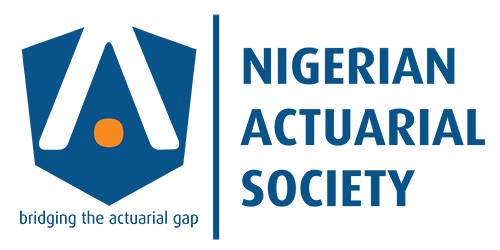The Nigerian financial landscape is poised for a significant transformation with the integration of international actuarial standards, a move spearheaded by the Financial Reporting Council of Nigeria (FRCN). This initiative, announced by FRCN Executive Secretary Dr. Rabiu Olowo, aims to align Nigerian actuarial practices with global best practices, enhancing the credibility and robustness of the nation’s financial sector. The adoption of the International Standards of Actuarial Practice (ISAPs) will be formalized through the Nigerian Actuarial Practice Regulations 2025, currently undergoing public consultation. This represents a crucial step towards fostering greater transparency, accountability, and investor confidence within the Nigerian financial system. The integration of ISAPs is expected to strengthen risk management practices, improve financial reporting, and enhance the overall stability of the insurance and pension industries.
Accompanying the regulatory changes is a comprehensive national policy framework aimed at bolstering actuarial education and capacity building within Nigeria. Recognizing the critical role of actuaries in a modern financial system, the FRCN, in collaboration with the Federal Ministries of Education and Industry, Trade and Investment, is developing a multi-pronged approach to foster actuarial talent. This initiative encompasses securing federal funding for actuarial education at both tertiary and postgraduate levels, introducing actuarial science as a subject in secondary schools, and integrating basic actuarial concepts into primary school curricula. This ambitious plan aims to cultivate a pipeline of future actuaries, ensuring the long-term sustainability and growth of the profession within Nigeria. By sparking early interest and providing comprehensive educational pathways, the initiative seeks to address the existing skill gap and equip future generations with the necessary expertise to navigate the complexities of the financial world.
The importance of developing actuarial capacity within Nigeria’s insurance sector was underscored by Insurance Commissioner Olusegun Omosehin. Highlighting the need for proactive measures to enhance actuarial expertise, Omosehin, represented by Deputy Commissioner Dr. Usman Jankara, emphasized the National Insurance Commission’s (NAICOM) commitment to supporting this development. NAICOM’s strategies include the issuance of guidance on insurtech operations and the launch of the Actuarial Capacity Development Initiative. These efforts aim to equip insurance professionals with the knowledge and skills required to effectively leverage technology and data analytics for improved risk assessment and pricing. The initiative acknowledges the transformative potential of insurtech and its implications for actuarial practice, underscoring the need for actuaries to adapt and expand their skillsets to remain relevant in an increasingly digitalized landscape.
Despite the strategic initiatives, funding for actuarial capacity development remains a significant challenge. NAICOM is actively engaging with development partners, including the Africa Re Foundation, GIZ, UNDP, and other international donors, to secure financial support for its programs. While these efforts are ongoing, Omosehin stressed the imperative for the Nigerian insurance industry to take ownership and commit to funding actuarial capacity development. This call for industry participation emphasizes the shared responsibility for building a robust and sustainable actuarial profession within the country. Securing adequate funding will be crucial for implementing training programs, attracting and retaining talent, and fostering a thriving ecosystem for actuarial practice.
The integration of technology and data analytics within the insurance sector presents both opportunities and challenges for actuarial practice. Babatunde Fajemirokun, CEO of AIICO Insurance, emphasized the transformative potential of insurtech, highlighting its impact on dynamic pricing, risk pooling mechanisms, and predictive modeling. These advancements necessitate the expansion of actuarial toolkits and the acquisition of new skills to effectively leverage these technologies. Actuaries are now required to possess data analysis and programming skills, alongside their traditional actuarial expertise. This shift necessitates continuous professional development and adaptation to remain relevant in the evolving landscape of the insurance industry. The ability to harness the power of data and technology will be crucial for actuaries to effectively manage risk, develop innovative insurance solutions, and contribute to the growth and stability of the financial sector.
The theme of the 2025 Annual Industry Conference of the Nigerian Actuarial Society (NAS), “Creating Value and Building Resilience in an Evolving Industry,” aptly captures the current landscape of the actuarial profession. NAS President Jolaoluwa Fakoya stressed the importance of adapting to volatility and creating value from uncertainty. Actuaries, he noted, must move beyond traditional analysis and embrace leadership, stewardship, and innovation to navigate the complexities of the modern financial world. This call for proactive engagement highlights the evolving role of actuaries, extending beyond traditional risk assessment to encompass strategic decision-making and driving innovation within their respective organizations. The conference serves as a platform for reflection, retooling, and reimagining the role of actuaries in building resilience and contributing to the sustainable growth of the financial sector.














